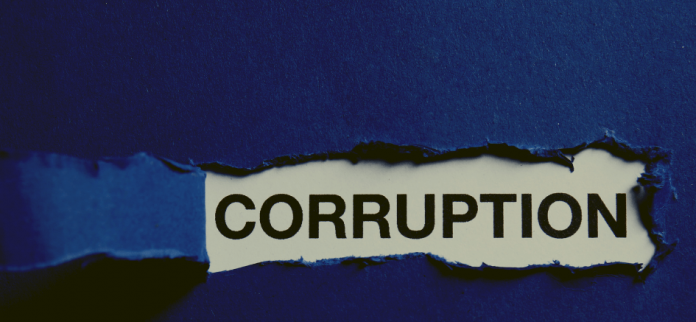This article has been prepared by Priyamvada Singh, from Galgotias University, Greater Noida. Here, she analyses the recent move of bringing universities of India under the Prevention of Corruption Act.
Table of Contents
Introduction
In 2020, a bench of the Apex Court ruled that deemed universities would come under the purview of Prevention of Corruption Act (PoCA), 1988. This move affects millions of national and international students. But how? What does this exactly mean?
Pooja and Kartik are best friends. Kartik decided to ask Pooja about the implications of such a move. The conversation went as follows:
Kartik: Pooja, did you hear about the recent SC judgement on deemed universities?
Pooja: Yes I Did! Kudos to the judiciary for taking this step. It was long due! The practise of asking for donations in the form of capitation fees is not just immoral, but illegal too.
Kartik: So I am curious, what is a ‘donation’?
Pooja: In India, a donation is a traditional term for capitation fees. This is a fee that educational bodies, especially of higher education like medicine, law, and MBA- ask for during admissions, but do not mention it in the prospectus. It is also defined in The Prohibition of Unfair Practices in Technical Educational Institutions, Medical Institutions and Universities Bill 2010 defines it as any amount that is:
- “Demanded or charged or collected, directly or indirectly, for, or, on behalf of any institution, or paid by any person in consideration for admitting any person as a student in such institution; and which is more than the fee payable towards tuition fee and other fees and other charges declared by any institution in its prospectus for admitting any person as a student in such institution; or
- Paid or demanded or charged or collected, by way of donation, for, or, on behalf of any institution, or paid by any person in consideration for admitting any person as a student in such institution”.
Kartik: But what does this mean exactly yaar? Why is it bad?
Pooja: The capitation fee leads to corruption in education. it fuels unethical practices by the college authorities to extract more money from students. It even leads to massive hikes in healthcare costs and deteriorating medical standards. Colleges usually keep the fees to be a surprise element and sometimes even resort to extortion by not giving students their degree. The fee is not even reported to income tax. Apart from this, the one to suffer the brunt of all this is the student and his family. They are misguided, extorted, and scared- and they can not do anything about it. The richer students get better chances at admissions, making the phenomena of the rich getting richer and the poor getting poorer. This makes the world further inhabitable- morally.
Kartik: Oh. That’s depressing. And what is a deemed university?
Pooja: So glad you asked this question. Let me tell you. For us to understand this judgement, we first need to know what a deemed university is. It is a university that has passed the quality checks imposed by the government- to grant degrees to its students.
K: So.. like a Hallmark, but for universities?
P: Exactly. Earlier this year, a deemed university in Gujarat was accused of seeking a hefty amount of 20 Lakh Rupees from a student in lieu of a seat in a medical college. The matter reached the Apex Court as an appeal by the Gujarat government and fell into the hands of a bench comprising Honourable Justices NV Ramana, Ajay Rastogi, and MM Shatanagoudar. The Justices concluded that these deemed universities do a public duty to the society, by giving out degrees- and helping students get a secure, bright future.
K: And what is this PoCA, 1988?
P: That stands for the Prevention of Corruption Act. It was brought in 1988. The title of the Act defines itself.
K: And where is a deemed university defined?
P: In Section 3 of the University Grants Commission Act(UGCA). It was passed in 1956. The accreditation is given by the Department of Higher Education.
K: But how does this Act relate to universities?
P: Because the PoCA applies to those doing public duties, primarily public officials. Here, the SC felt the deemed universities are doing public duty as well. The judgement even read,
“Keeping the same in mind, as rightly submitted by the learned senior counsel for the appellant state, it cannot be stated that a ‘deemed university” and the officials therein, perform any less or any different a public duty, than those performed by a university simpliciter, and the officials therein.”
K: What was the name of the trust?
P: Sumandeep Vidyapeeth.
K: What was the case about?
Background
Bribery accusation
P: MK Shah was a trustee of a trust which had set the founding stone of a deemed medical university in Gujarat. He was accused of seeking Rs 20 Lakh from an MBBS student to let her take the final examination, even though her final fees had already been paid up. A trap was set up by the police in the form of video cameras and audio recorders. After the acceptance of a cheque by the university, the police raided the office and found cheques of about 100 Crores there. Taking the evidence and their accusations, the victim’s family approached the court and complained about the system. Shah and four others were booked under sections 7 (public servant accepting illegal gratification), 8 (taking illegal gratification to influence public servant), and 13 (1)(b) and 13(2) (criminal misconduct by a public servant) of the Prevention of Corruption Act, 1988, read with Section 109 (pertaining to abetment) of the Indian Penal Code. However, in 2018, the Gujarat High Court discharged the case and asserted that a deemed university does not come under the purview of PoCA, 1988.
K: And that is when the SC stepped in?
P: Yes. The matter was appealed in the SC for further deliberations. The SC concluded that Section 2(c)(xi) of the Prevention of Corruption Act defines a “public servant” as “any person who is a vice-chancellor or member of any governing body, professor, reader, lecturer or any other teacher or employee, by whatever designation called, of any university”.
K: Did Shah not say anything?
P: Of course he did. He alleged that since he is merely the trustee of the trust, he has no direct connection with the deemed university. However, the Court dismissed his plea and concluded that on the face of it, he was in fact, the authority of admission, and thus also was liable for seeking donations.
Need for the law
K: But what was the need for such a judgement?
P: In 2015, the Maharashtra government, under the aegis of its Governor C V Rao, brought in an ordinance to regulate the admissions fee payment process in colleges, to curb the practice of donation seeking. This ordinance was brought to provide a level field to the under-privileged and bring them at par with the privileged students- who were relatively economically stronger. The move was aimed at tackling the claiming of capitation fees, otherwise known as ‘donation’ was normal- and even accepted. This money-making process per student, could start from 25 lakhs, and go up to a few crores. Needless to say, the students who did not possess this kind of money, did not have an equal opportunity of becoming doctors, like their counterparts- who did. The ordinance was vehemently welcomed and praised. With the new ordinance, the fee regulating authority would have the power to give the final approval for fee proposals, verification of infrastructure facilities, amenities, and redressal of grievances of students, parents and college management.
The Act will be applicable to all unaided and private higher, technical, medical and agriculture education colleges and universities. It will, however, not cover deemed universities and institutions such as IIT and 15% management quota seats.
Maharashtra has 27 unaided medical and dental colleges with more than 5,000 seats for MBBS, BDS, BSc (nursing) and other paramedical courses. According to the state medical education department, private medical colleges often take huge capitation fees from students, malpractice which the law will put an end to. Earlier, there was a fee-fixation committee, but it did not have enough powers to summon the authorities from private colleges. With new provisions, the authority could take stricter action. The government has, time and again, made efforts to combat this problem of donation. However, with each move, the perpetrators seem to be getting smarter. In 2018, it was reported by noted news agency India Today, that medical colleges were blocking seats for low ranking NEET candidates, for the hope of payment of capitation fees. Sots were pre-booked and merit was not given any heed. What only mattered was – How much could one candidate pay?
Analysis
K: What is your personal opinion about this, Pooja?
P: I believe that since India is a developing country, the move to make colleges and universities a place to mint out money, that too illegally, is not just unethical, but also immoral. The majority of the country’s population can not afford hefty fees for a degree, and it is because of instances like these that the poor are forced further into the vicious circle of poverty. Because of this, the economic and social development of the country suffers further losses, so this isn’t an individual loss, it is the nation’s loss at large. This step is a move against that. It is against every practice that believes the rich should get richer and the poor should get poorer. Deemed university’ is a highly sought-after tag that endows an institution not just with degree-granting powers, but also a stamp of quality approval that in turn draws students. The bench observed that the officials of a deemed university do not perform any less of public duty than their counterparts in other universities. The purpose under the PC Act was to shift focus from those who are traditionally called public officials, to those individuals who perform public duties.
K: Wow, Pooja. You really know so much! Let’s go out for some food and celebrate your intelligence?
P: Haha how about no? Let’s order in some Hyderabadi Biryani instead. COVID- 19 looms large, and it is not safe to go out.
K: Ok.
Conclusion
The move to broaden the definition of who shall come under PoCA, 1988 is a welcome move and must be celebrated. ‘Deemed University’ is a highly sought-after tag that gives an institution not only degree-granting power but also a quality approval stamp that attracts students in turn. The acknowledgement of the Apex Court that officials at a deemed university do no less public duty than their counterparts at other universities does, provides an opportunity for others to play their part in levelling the field. The intention of the PC Act was not only to discourage bribery and corruption from social evil but also to make the same apply to individuals who don’t seem to conventionally be considered public servants. Under the PC Act, the aim was to shift emphasis from those traditionally referred to as public officials to those employees who did public duties.
It is the first step towards a better India where everyone has an equal chance of a better, brighter future. Like the protagonist in a recent movie said, “ab raja ka beta raja nahi banega, banega wo- jo haqdar hoga”.
References
- https://www.latestlaws.com/latest-news/corruption-chocking-constitutional-aspirations-sc-rules-deemed-universities-and-their-trustees-to-fall-under-graft-act/
- https://timesofindia.indiatimes.com/india/Capitation-fee-is-illegal-rules-Supreme-Court/articleshow/52083382.cms
- https://www.indiatoday.in/education-today/news/story/deeemed-universities-will-now-fall-under-ambit-of-anti-corruption-act-1988-sc-1672914-2020-04-30
- https://www.thehindu.com/news/national/anti-corruption-law-covers-deemed-varsities-too-supreme-court/article31457413.ece
- https://www.jagranjosh.com/general-knowledge/sc-on-deemed-university-1592306231-1
- https://theprint.in/judiciary/corruption-law-applies-to-deemed-university-says-sc-allows-officials-trial-for-bribery/410640/
- https://theprint.in/india/governance/govt-ugc-clearing-deemed-varsity-status-unfit-andhra-institute/42522/
- https://www.deccanherald.com/national/officials-of-deemed-university-covered-under-anti-graft-law-sc-831056.html
- https://www.indiatoday.in/india/story/india-today-expose-how-medical-colleges-scam-neet-sell-seats-to-underachievers-1288086-2018-07-17
LawSikho has created a telegram group for exchanging legal knowledge, referrals and various opportunities. You can click on this link and join:
 Serato DJ Crack 2025Serato DJ PRO Crack
Serato DJ Crack 2025Serato DJ PRO Crack











 Allow notifications
Allow notifications


